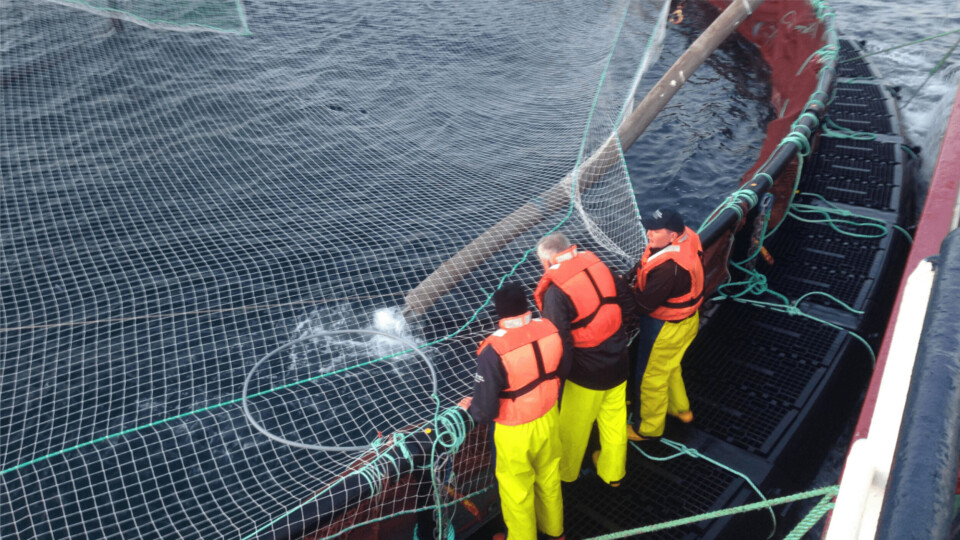
Fish farmers join call for ‘key worker’ childcare places
Salmon farmers and processors have joined other food producers in asking the Scottish Government to provide greater clarity to the country’s 32 local authorities on who they should define as key workers, to support the supply of food across the country during the Covid-19 epidemic.
The food producers, comprised of Scotland’s leading farming, fishing, food and drink organisations, are also urging businesses to follow some critical steps to reduce staffing to the bare minimum required to secure Scotland’s food supply.
In a joint statement, the producers said that in England, Wales and Northern Ireland, national advice has been issued defining key workers as including those involved in the production, delivery and sale of food.
Case by case decision
However, in Scotland, no such advice has been issued and it is being left to 32 local authorities to make a case by case decision on individual businesses and groups of workers.
Schools in Scotland were closed indefinitely on Friday to help prevent the spread of the coronavirus which causes Covid-19, but key workers such as frontline medical staff are being allowed to send their children to school so that they don’t have to take time off work to look after them.
Julie Hesketh-Laird, chief executive of the Scottish Salmon Producers’ Organisation (SSPO), said: “Public health is the top priority currently and salmon farmers are working to keep those who work in the sector safe while caring for our livestock. But we also recognise the importance of keeping fresh food supplies such as Scottish salmon available to households throughout this crisis.

‘Consistent approach’
“That is why the SSPO is working with other food and drink bodies, with local authorities and the Scottish Government to try to ensure a consistent, Scottish-wide approach to this issue of ‘key workers’ to help keep essential fresh food being supplied.
“Our members are working hard to reduce staffing levels to the lowest possible number required to maintain the production of essential goods. Many local authorities are still working on and reviewing their lists of key workers and we urge them, to help keep fresh food supplies available, to recognise the importance of those who work in essential fish farming roles.
“We will remain regular dialogue with Councils and the Scottish Government.
Reduce staffing levels
The statement from the food producers, including both the SSPO and processors’ organisation the Scottish Seafood Association, said food and drink businesses are being asked to:
- Reduce staffing levels to the lowest possible number required to maintain the production of essential goods
- Not to contact a local authority to make the case for key worker designation unless it is the measure of last resort after all other measures have been explored first (e.g. shift changes, halting some production lines, alternative childcare arrangements)
- Only seek designation for “business critical” roles.
The statement said: “All the industry organisations recognise the vital importance of keeping the definition of key workers incredibly narrow. The numbers of children attending schools must be kept as low as possible. In addition, prioritisation should clearly be for category 1 key workers, such as those saving lives in our NHS.
Category 2 designation
“Against that background though, the industry organisations have also stressed the importance of ensuring the ongoing supply of food and drink into key public services and retailers. At present, some local authorities have recognised the priority of food supply under category 2 of the key worker designation. That is welcome. However, many have not.
“Food and drink products cross council boundaries when going from where they are produced, to where they are processed, to where they are sold. An inconsistent approach and a lack of support for councils in defining key workers, could add further strain to a food supply chain already under enormous pressure.
Challenging to strike balance
“All the organisations recognise the huge efforts of Ministers in the face of issues of incredible complexity and gravity. It is hugely challenging to strike a balance between protecting public health and maintaining essential services, with very difficult decisions required. We commit to do all we can to support that effort, to take tough decisions ourselves. We will be working further in the coming hours and days to help define specific roles with food and drink production. That way, the essential balance between public health and ongoing food supply can be found.”
The other that have put their names to the statement are: Scotland Food & Drink, FDF Scotland, Scottish Agricultural Organisation Society (SAOS), National Farmers Union Scotland (NFUS), Quality Meat Scotland (QMS), Seafood Scotland, Scotch Whisky Association (SWA), Scottish Fishermen’s Federation, Scottish Association Meat Wholesalers (SAMW), Dairy UK, Agricultural Industries Confederation Scotland (AIC Scotland) and Scottish Bakers.























































